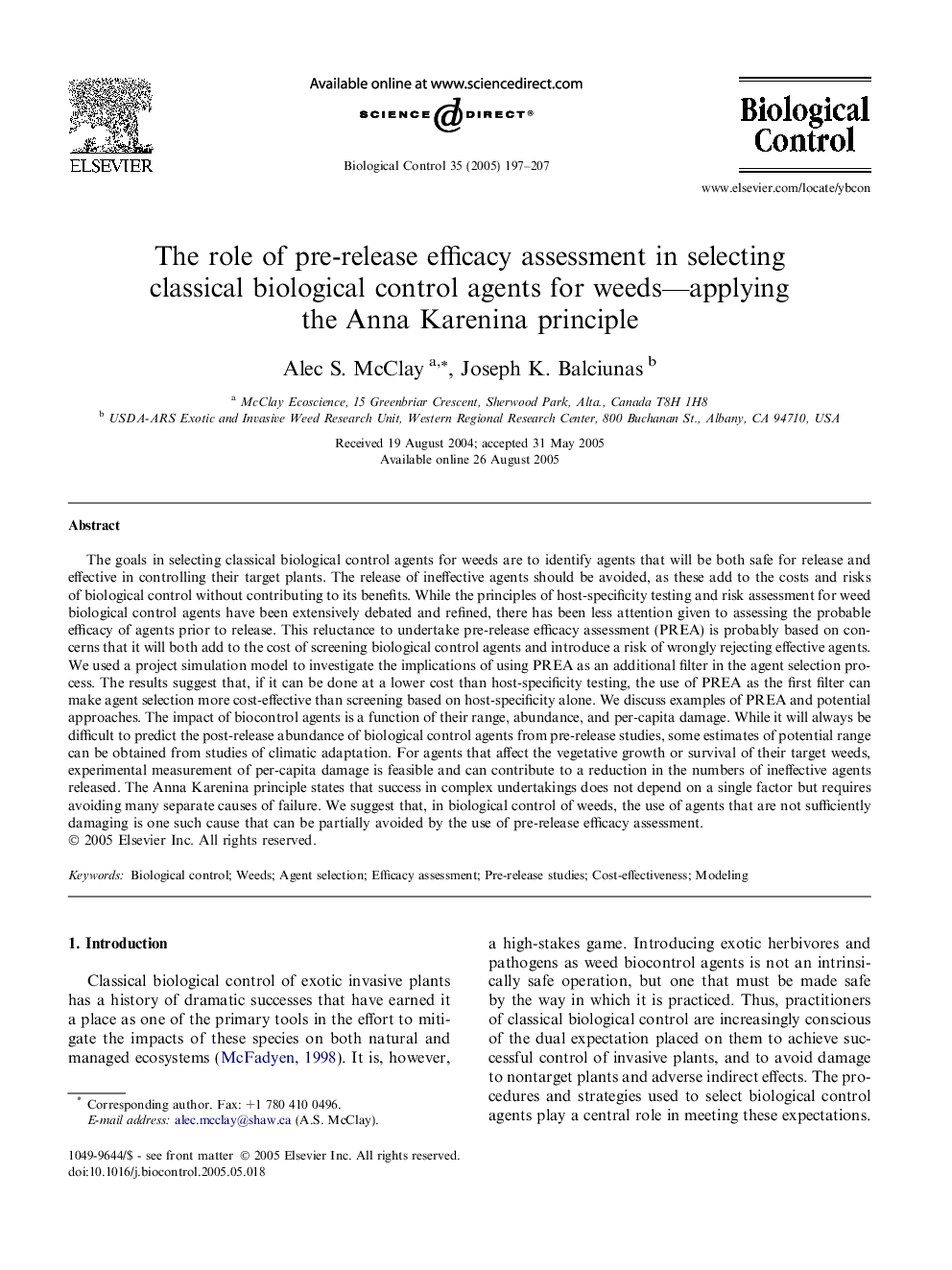| کد مقاله | کد نشریه | سال انتشار | مقاله انگلیسی | نسخه تمام متن |
|---|---|---|---|---|
| 9471888 | 1321141 | 2005 | 11 صفحه PDF | دانلود رایگان |
عنوان انگلیسی مقاله ISI
The role of pre-release efficacy assessment in selecting classical biological control agents for weeds-applying the Anna Karenina principle
دانلود مقاله + سفارش ترجمه
دانلود مقاله ISI انگلیسی
رایگان برای ایرانیان
کلمات کلیدی
موضوعات مرتبط
علوم زیستی و بیوفناوری
علوم کشاورزی و بیولوژیک
علوم زراعت و اصلاح نباتات
پیش نمایش صفحه اول مقاله

چکیده انگلیسی
The goals in selecting classical biological control agents for weeds are to identify agents that will be both safe for release and effective in controlling their target plants. The release of ineffective agents should be avoided, as these add to the costs and risks of biological control without contributing to its benefits. While the principles of host-specificity testing and risk assessment for weed biological control agents have been extensively debated and refined, there has been less attention given to assessing the probable efficacy of agents prior to release. This reluctance to undertake pre-release efficacy assessment (PREA) is probably based on concerns that it will both add to the cost of screening biological control agents and introduce a risk of wrongly rejecting effective agents. We used a project simulation model to investigate the implications of using PREA as an additional filter in the agent selection process. The results suggest that, if it can be done at a lower cost than host-specificity testing, the use of PREA as the first filter can make agent selection more cost-effective than screening based on host-specificity alone. We discuss examples of PREA and potential approaches. The impact of biocontrol agents is a function of their range, abundance, and per-capita damage. While it will always be difficult to predict the post-release abundance of biological control agents from pre-release studies, some estimates of potential range can be obtained from studies of climatic adaptation. For agents that affect the vegetative growth or survival of their target weeds, experimental measurement of per-capita damage is feasible and can contribute to a reduction in the numbers of ineffective agents released. The Anna Karenina principle states that success in complex undertakings does not depend on a single factor but requires avoiding many separate causes of failure. We suggest that, in biological control of weeds, the use of agents that are not sufficiently damaging is one such cause that can be partially avoided by the use of pre-release efficacy assessment.
ناشر
Database: Elsevier - ScienceDirect (ساینس دایرکت)
Journal: Biological Control - Volume 35, Issue 3, December 2005, Pages 197-207
Journal: Biological Control - Volume 35, Issue 3, December 2005, Pages 197-207
نویسندگان
Alec S. McClay, Joseph K. Balciunas,